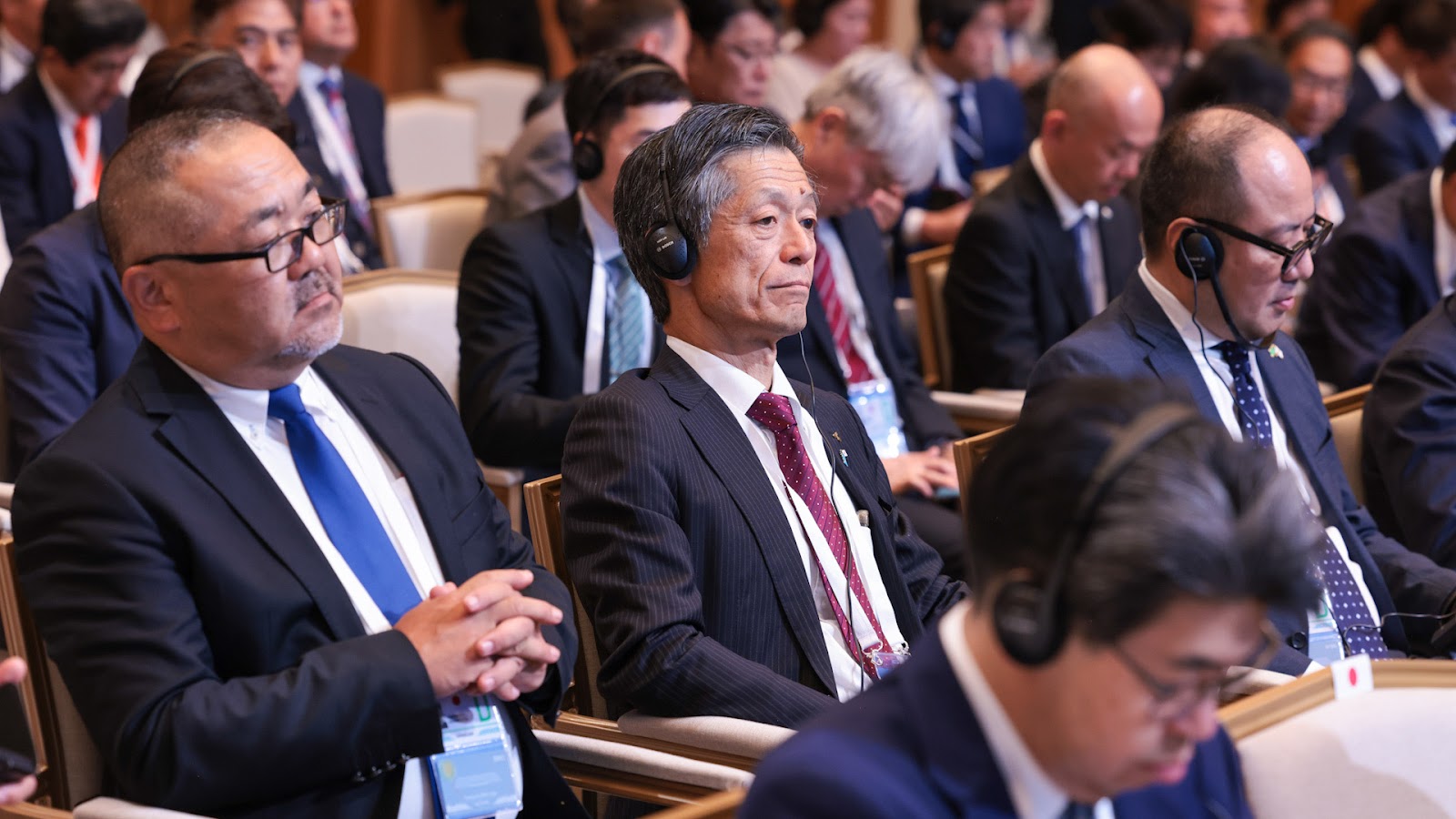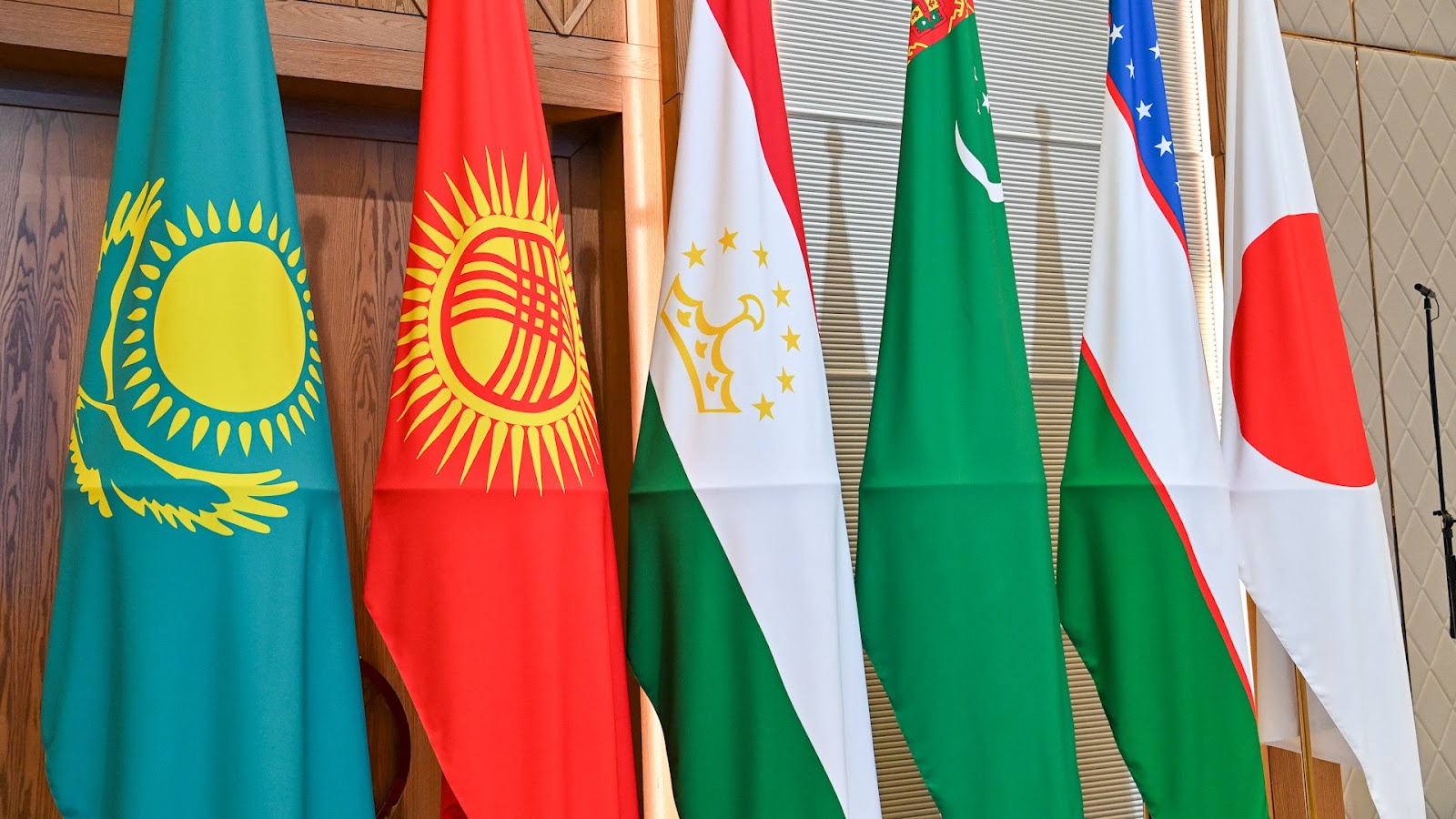The business forum of the “Central Asia + Japan” Dialogue brought together more than 450 representatives of delegations from six countries in Astana. The business community of Japan is represented by the leadership and managers of such large companies as Toyota Tsusho Corporation, Mitsubishi Heavy Industries EMEA, Ltd., Mitsui & Co., Ltd, and scientific workers from industry universities and others took part from the expert community. There were discussed the prospects for strengthening economic ties and expanding interaction, including in the field of digitalization, transport and logistics industry, agro-industrial complex, heavy industry sector, etc.
“Japan is rightfully considered one of the economic and technological leaders on a global scale... In turn, Central Asia is a dynamically developing region with huge growth potential and all the conditions for comprehensive cooperation. I believe that the countries of our region and Japan have enormous potential for the progressive expansion of cooperation. The implementation of transnational projects with the participation of Japanese investors undoubtedly contributes to increasing the level of economic interconnectedness of the region,” the head of the government of the Republic of Kazakhstan, Olzhas Bektenov emphasized, in his welcoming speech.
The forum program included plenary sessions on the topics of cooperation in the field of carbon neutrality and industrial modernization, developing connectivity between Japan and Central Asia in the context of a changing international situation, investing in human capital and strengthening business infrastructure for business development, interaction in the financial sector.
Today, a unique IT ecosystem is being created in the Central Asian region, which will significantly modernize the public administration sector, the fintech industry and e-commerce. In this regard, cooperation between Central Asian countries and Japan in the implementation of artificial intelligence technologies, construction of data centers, and ensuring cybersecurity can be fruitful for all parties. The agricultural technologies used in Japan, based on AI, robotics and other advanced scientific achievements, are also of interest.

It was paid attention to expanding partnerships in the development of rare earth metal deposits and the implementation of joint projects in the transport and logistics industry. The transit potential of Central Asia with access to the North, South, East and West opens up great opportunities for Japanese exports and imports.
Representatives of Turkmenistan acquainted the audience with the processes of formation of a new industrial model of the national economy, based on the effective use of local natural resources and geographical location, and the capabilities of innovative technologies. It was noted that the Government pays great attention to supporting entrepreneurship, developing small and medium-sized businesses, and implementing programs to create enterprises that produce import-substituting products that are competitive in world markets.
Particular emphasis is placed on the main provisions of the investment policy of Turkmenistan and the current legislation providing for tax, customs, visa and other benefits for investors, foreign firms and companies operating in the country.

The result of the business forum within the framework of the “Central Asia + Japan” Dialogue was the signing of documents on the implementation of joint projects, including between the Turkmen and Japanese sides. Among them is a roadmap for the GTG-2 project (production of gasoline from natural gas) between the State Concern “Turkmenhimiya”, the Japanese companies “Kawasaki Heavy Industries, Ltd.”, “Itochu Corporation” and the Turkish “Rönesans”.
The State Concern “Turkmenhimiya” concluded another Memorandum of Understanding with the group of companies “Mitsubishi Heavy Industries”, “Mitsubishi Corporation” and a second one with the “Toyo Engineering” corporation. A Framework Agreement was also adopted between the Ministry of Energy of Turkmenistan and the Japanese corporation “Sumitomo” for the supply of spare parts for testing the turbine of the Lebap State Power Plant.
A Memorandum of Academic Exchange and Cooperation was signed by the Turkmen Oguz Khan University of Engineering and Technology and the Japanese University of Tsukuba.
A Memorandum of Cooperation was signed by the Ministry of Trade and Foreign Economic Relations of Turkmenistan and the Japan External Trade Organization, JETRO.
The State Bank for Foreign Economic Affairs of Turkmenistan and the Japan Export and Investment Insurance Agency, NEXI, signed a Memorandum of Understanding to strengthen cooperation.
The Ministry of Textile Industry of Turkmenistan and the Japanese commercial and industrial holding company “Masui” also confirmed their intentions to establish partnership contacts in a Memorandum of Understanding.
ORIENT news




